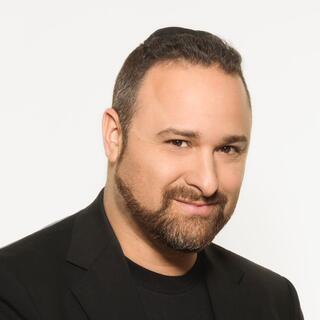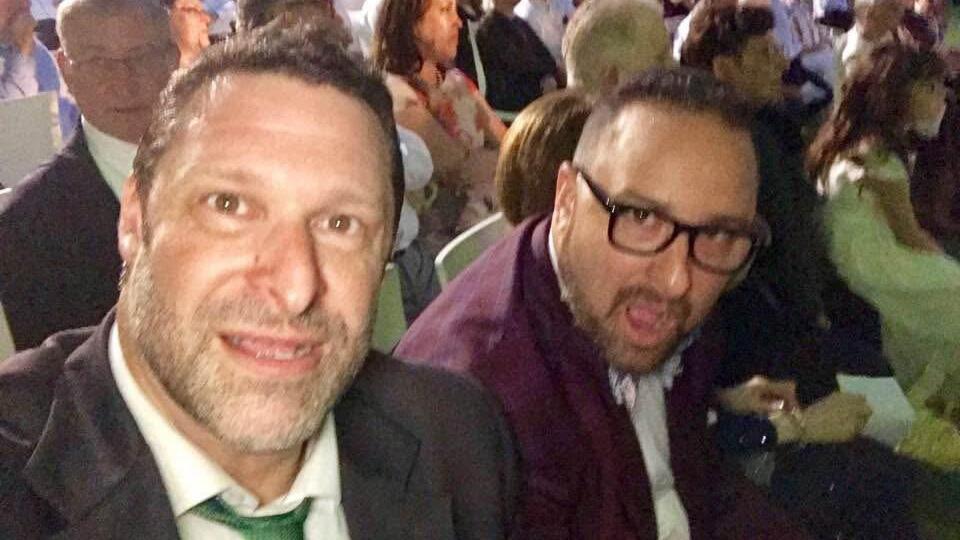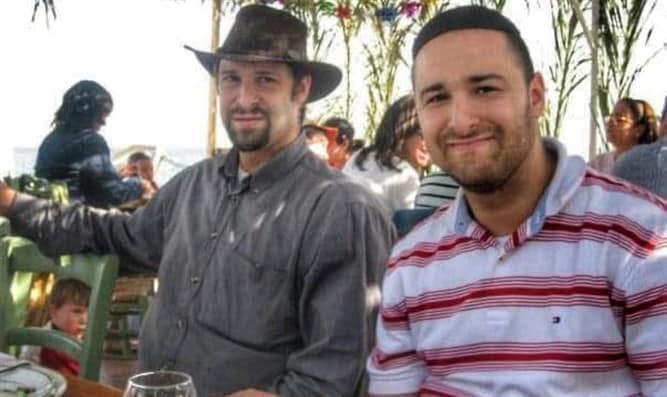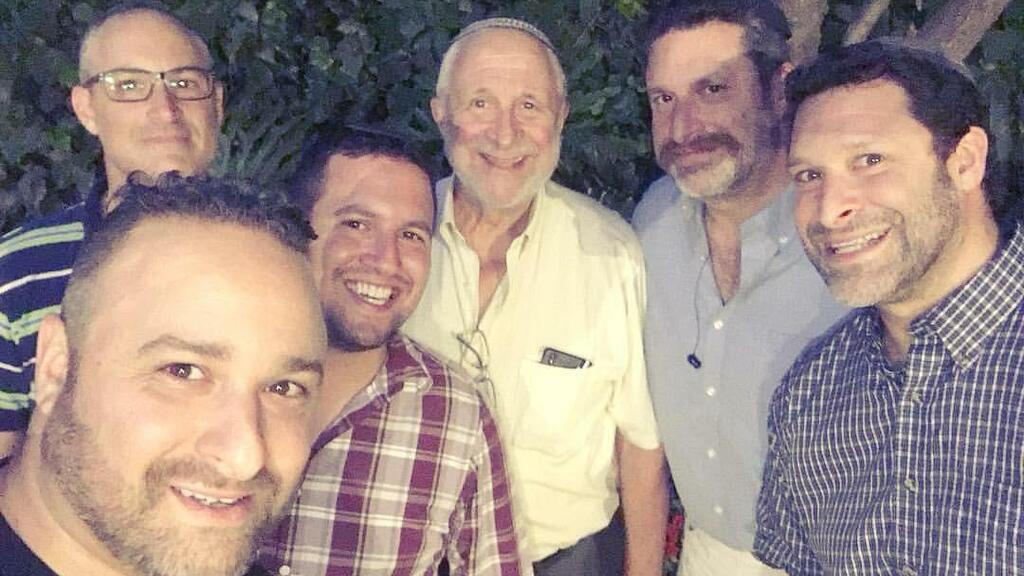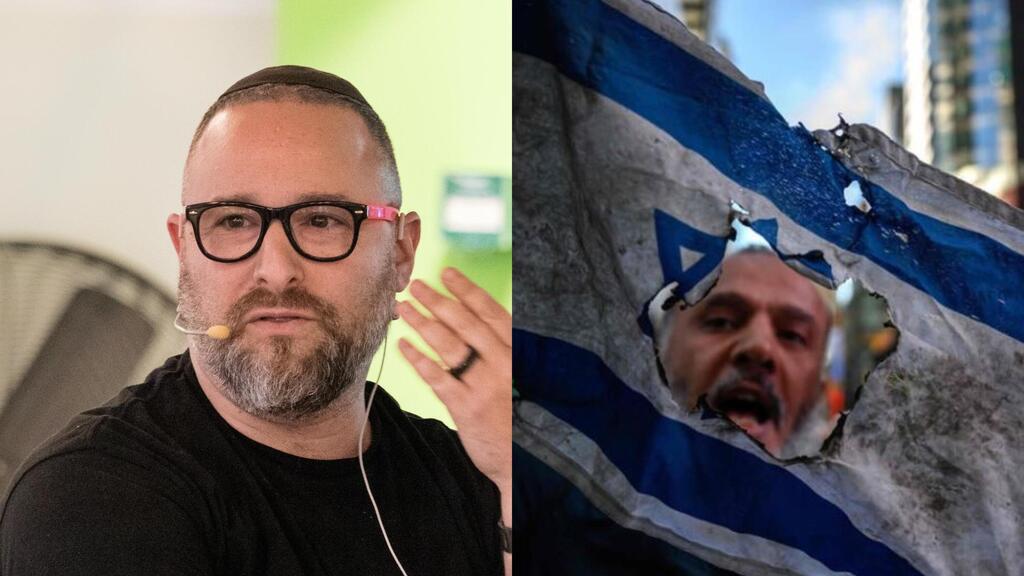Six years ago, I was entered into a club no one wants to be a part of—the club of families who lost a loved one to terror.
My older brother, Ari Fuld, was tragically murdered while shopping for his family just 10 minutes outside Jerusalem. The terrorist was a Palestinian youth, something worth emphasizing. He wasn’t affiliated with an organization like Hamas. He was a young man who lacked for nothing, yet woke up one morning and decided to murder a Jew.
Ari heroically chased him down despite being fatally stabbed, got into a shooting position, and neutralized the terrorist just inches from his next victim. Ari then collapsed and died. Since then, Ari has been named a national hero of Israel, and his terrorist was sentenced to life in prison. Or so we thought.
The monster who changed our family forever is now on the list of terrorists set to be freed as part of the upcoming hostage deal.
Upon hearing the news of this terrorist's release, I had to catch my breath. There’s no guidebook for how to feel when your brother is murdered and gone forever, while his killer will walk free and live as a regular citizen.
But then I experienced the cognitive dissonance often associated with the Middle East conflict.
On the one hand, the idea of this terrorist being released is a source of deep pain for me and my family. On the other hand, Ari—still indirectly—played a role in freeing hostages and bringing them back from hell to be reunited with their families.
As I often say, despite what keyboard warriors might argue online, this deal is both terrible strategically and beautiful personally.
<< Get the Ynetnews app on your smartphone: Google Play: https://bit.ly/4eJ37pE | Apple App Store: https://bit.ly/3ZL7iNv >>
No one wants to see thousands of monsters walking freely, but anyone who watched the hostages reunite with their families couldn’t stay indifferent.
It was one of the most emotional moments I can remember — watching those hostages embrace their families after 500 days of actual hell. In a way, Ari is responsible for that embrace. Ari was not just a warrior and hero in death, but in life as well.
He moved to Israel before the rest of us, volunteered for the IDF, and rose through the ranks. He continued to volunteer for reserves, even after receiving his exemption papers.
Ari didn’t just fight for his people offline as a soldier; he did so online as well.
Ari had zero tolerance for lies about Israel.
He fought online day and night against the blood libels spread about Israel and the Jewish people.
Upon hearing the news of this terrorist's release, I had to catch my breath. There’s no guidebook for how to feel when your brother is murdered and gone forever, while his killer will walk free and live as a regular citizen
He had no tolerance for those using terms like "West Bank" or advocating for a Palestinian state. He would correct them, reminding them it was Judea and Samaria, and that such a state never existed.
Through social media, my brother impacted millions, something that became clear after his death.
Even today, six years later, my inbox is full of messages from people telling me how my brother changed their lives.
I often reply, asking if they were close friends, to which they respond, “No, I never met him.”
I ask, “Did you speak to him often by phone or online?”
They reply, “No, I never spoke to him.”
Ari touched more lives than he knew, and his legacy lives on through his amazing wife, children, extended family, and his national family.
On October 7, I shut down my multimillion-dollar tech consulting business to focus on Israel and use my platform to reach millions of people and billions of impressions.
Ari’s strategy was to engage everyone, regardless of whether they could be convinced. He explained that even if a person wasn’t listening, others were watching the dialogue and needed to hear the truth. I focus more on those who are listening and try not to waste time on those who refuse to hear the truth.
It was one of the most emotional moments I can remember — watching those hostages embrace their families after 500 days of actual hell. In a way, Ari is responsible for that embrace
We may have different strategies when it comes to social media, but one thing guides me as I continue his work: On a daily, sometimes hourly, basis, I ask myself, “What would Ari do?” and then I act on it.
His loss was a tremendous tragedy for our family, but his life is a tremendous source of pride.
He saved lives when he lived. He saved lives when he died. And now, as these poor hostages come home, he continues to save lives long after he’s gone.


